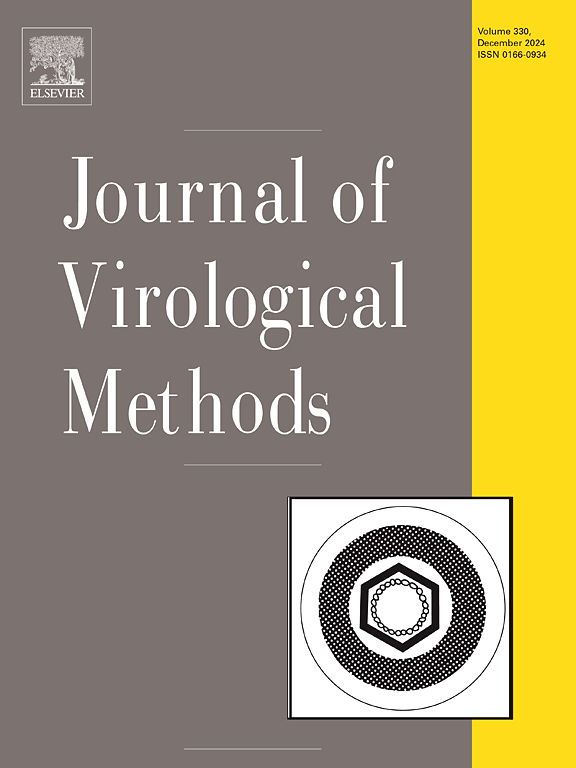Evaluation of a concentration method for the recovery of human adenovirus from mineral water, tap water and well water
IF 2.2
4区 医学
Q3 BIOCHEMICAL RESEARCH METHODS
引用次数: 0
Abstract
Human adenoviruses (HAdV) are frequently excreted in large quantities and persist for extended periods in the environment, posing a significant health risk related to waterborne gastroenteritis. The objective of this study was to evaluate an adsorption-elution method using a negatively charged nitrocellulose membrane for its effectiveness in recovering HAdV from three different types of water (mineral water, tap water and well water). The detection of HAdV was carried out using real-time PCR. For this purpose, sterilized water samples were spiked with HAdV-infected stool and filtered through an electronegative membranes coated with MgCl₂ to retain viral particles. Subsequently, the viruses were eluted from the filters using sodium hydroxide and concentrated through two centrifugation cycles. Viral nucleic acids were then extracted and detected by real time PCR. Regarding HAdV recovery, the method's efficiency varied depending on the type of analyzed water. However, this method demonstrated a consistent performance, providing reliable results across different water samples, whether from mineral water, tap water or well water. This consistency in viral recovery is crucial to ensuring the accuracy and reliability of virological analyses in various aquatic environments.
求助全文
约1分钟内获得全文
求助全文
来源期刊
CiteScore
5.80
自引率
0.00%
发文量
209
审稿时长
41 days
期刊介绍:
The Journal of Virological Methods focuses on original, high quality research papers that describe novel and comprehensively tested methods which enhance human, animal, plant, bacterial or environmental virology and prions research and discovery.
The methods may include, but not limited to, the study of:
Viral components and morphology-
Virus isolation, propagation and development of viral vectors-
Viral pathogenesis, oncogenesis, vaccines and antivirals-
Virus replication, host-pathogen interactions and responses-
Virus transmission, prevention, control and treatment-
Viral metagenomics and virome-
Virus ecology, adaption and evolution-
Applied virology such as nanotechnology-
Viral diagnosis with novelty and comprehensive evaluation.
We seek articles, systematic reviews, meta-analyses and laboratory protocols that include comprehensive technical details with statistical confirmations that provide validations against current best practice, international standards or quality assurance programs and which advance knowledge in virology leading to improved medical, veterinary or agricultural practices and management.

 求助内容:
求助内容: 应助结果提醒方式:
应助结果提醒方式:


